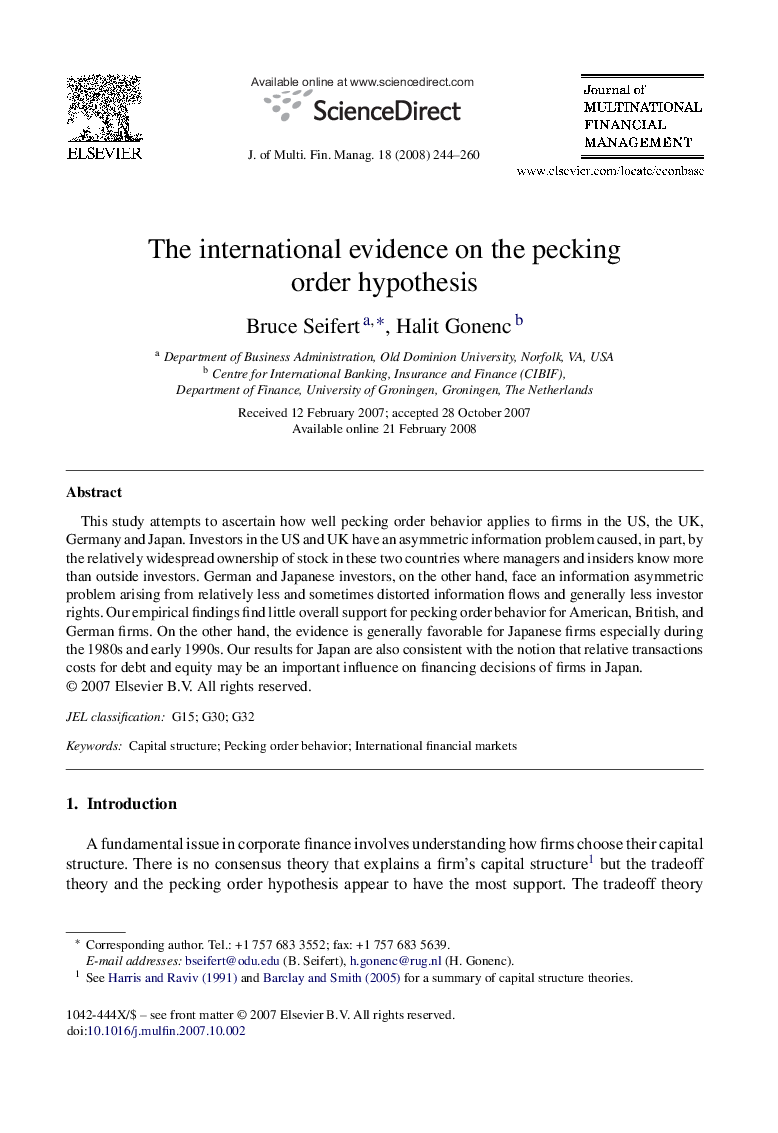| Article ID | Journal | Published Year | Pages | File Type |
|---|---|---|---|---|
| 967515 | Journal of Multinational Financial Management | 2008 | 17 Pages |
Abstract
This study attempts to ascertain how well pecking order behavior applies to firms in the US, the UK, Germany and Japan. Investors in the US and UK have an asymmetric information problem caused, in part, by the relatively widespread ownership of stock in these two countries where managers and insiders know more than outside investors. German and Japanese investors, on the other hand, face an information asymmetric problem arising from relatively less and sometimes distorted information flows and generally less investor rights. Our empirical findings find little overall support for pecking order behavior for American, British, and German firms. On the other hand, the evidence is generally favorable for Japanese firms especially during the 1980s and early 1990s. Our results for Japan are also consistent with the notion that relative transactions costs for debt and equity may be an important influence on financing decisions of firms in Japan.
Related Topics
Social Sciences and Humanities
Economics, Econometrics and Finance
Economics and Econometrics
Authors
Bruce Seifert, Halit Gonenc,
